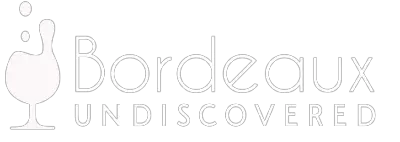The rumours have now become a reality and it looks as if the chateaux are releasing their wines and prices before Parker releases his scores. Whether this is a wise move or not time will tell. In the past when chateaux have released their wines before Parker’s scores they did so thinking that they wouldn’t get a good review from Parker himself.
This was the case in 2008 when Parker praised the vintage and offered good scores to many chateaux who felt very sore because they could have released at higher prices if they had waited. They have never forgotten this – at the time I heard rumours that the chateaux owners were somewhat grieved they weren’t able to maximise on their prices.
You may or may not be aware that Lafite released their wines yesterday. The price to us UK Wine Merchants is at 420 – 430 euros and the price to the Negotiants (French Wine Merchants), from whom we buy, was at 350 euros. For UK Wine Merchants to make a profit they generally put a 10% margin on top of their purchase price and from within that margin they have to transport the wine from Bordeaux on a rising cost basis due to fuel costs and insurance.
As the value of the wine has increased substantially over recent years the cost of insurance has also soared. Therefore after the UK Wine Merchants have taken their costs into account there is not much profit. I am not asking you to get your violins out but I believe there is some confusion as to who buys what and at what prices – I hope this clarifies the situation.
On a more poignant note my guess is that Lafite, who reputedly made 200 million euros net profit last year, may be being used as a guinea pig by the First Growths to see how this price is received by the market. The caveat this year is that they are only releasing 1/3rd of their production and to receive any sort of allocation of Lafite UK Merchants are being asked to commit to buying Rieussec, L’Evangile and Dassault.
As for pricing of Lafite this year all this being considered – and more importantly the quality of the 2011 vintage – I believe a fairer price for UK Wine Merchants should have been around 220 – 230 euros. Therefore I am astonished at the price of 420 euros (not forgetting the added burden of the caveat) . . . and will not be buying. I really don’t think this is an investment wine but that it is a drinking wine and I think that a fair price to wine lovers and consumers should have been somewhere around 275 euros.
As far as the other wines that Lafite are asking us to support I would suggest that Rieussec would be good, considering that 2011 is such a good year for Sauternes and the Dry Whites. But, sadly, who wants X number of cases of Sauternes in the cellar alongside 1 case of Lafite?
This now brings into question the whole En Primeur system and why are they releasing so little? I think this sends out a warning to the market of things to come in the future, My suspicion is that as Asia doesn’t like to buy wines that aren’t ‘physical’ (ie futures) the chateaux are trying to maximise their situation by holding stock back this year which will enable them to release wines when later bottled. Many of the major chateaux in Bordeaux are currently enlarging their cellars giving them the facility to release when they like.
If this is the case those chateaux w ho do go it alone will have to adopt a steep learning curve in how to conduct themselves in the open market without the luxury of a negotiant covering their flanks. I have noticed that some chateaux seem to be gearing themselves up to work directly with the markets by employing ex-negotiants within their marketing departments. A sign of the future perhaps?
ho do go it alone will have to adopt a steep learning curve in how to conduct themselves in the open market without the luxury of a negotiant covering their flanks. I have noticed that some chateaux seem to be gearing themselves up to work directly with the markets by employing ex-negotiants within their marketing departments. A sign of the future perhaps?
However by adopting this policy are the chateaux owners being naïve in remaining loyal to their Asian market, ignoring traditional markets and hoping to profiteer? If my suspicions are correct and major chateaux follow Latour‘s lead this will cause much animosity within the market – not only to the end customer but within the supply chain. It’s a risky strategy which possibly may well work if the vintages are good or above average (such as the 2009 or 2010) but will it work with poor or mediocre vintages?
If I am correct in my thoughts the real loser will be the traditional markets. That said if Asia becomes unstable in any way and fails to buy the wines (I was recently told that a 31 million euro order from China for the 2010 vintage was cancelled – which affected 10 leading negotiants in Bordeaux) how will the traditional markets react should Bordeaux look to them once more?
I think that what is happening in Bordeaux is very unsettling for the market. I stand by my previous comment in that this year let ‘Buyer Beware’ if they are considering buying 2011 En Primeur. Wines could come down in price – as they did in 2007 – and you might be wiser to keep your money in your pocket till things have settled down a bit.


